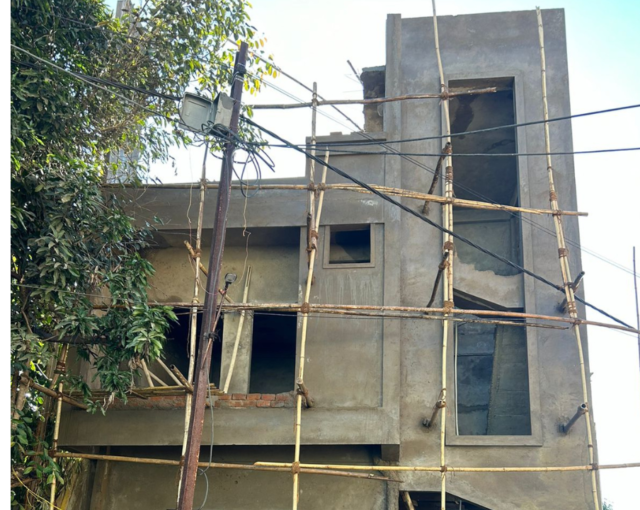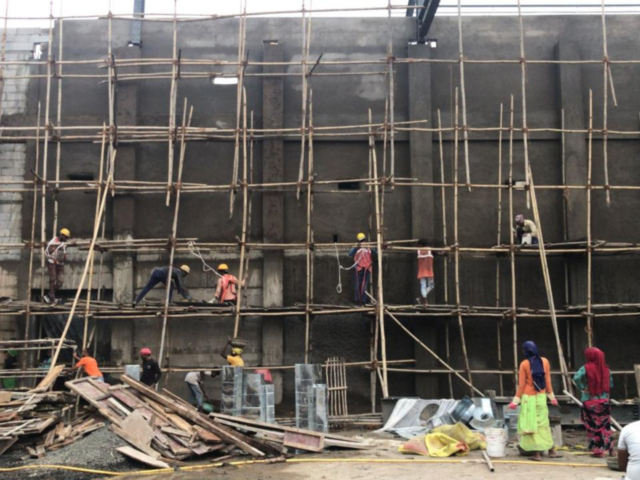
The construction industry is a cornerstone of modern society, responsible for creating the infrastructure and buildings that facilitate our daily lives. From residential homes to skyscrapers and bridges, the process of construction is a complex journey requiring meticulous planning, skilled execution, and precise management. In this blog, we will delve into the intricacies of construction work processes, outlining the steps, challenges, and best practices to ensure successful project completion.
What Are Construction Work Processes?
Construction work processes encompass the systematic steps and methods employed to plan, design, and build structures. These processes are critical for ensuring safety, efficiency, and quality in every project. Understanding these workflows can help stakeholders streamline operations and minimize risks.
The Core Stages of Construction Work Processes
Construction projects typically follow a set sequence of stages. Each stage requires a unique set of skills, tools, and resources to ensure the project moves forward seamlessly.
1. Pre-Construction Phase
a) Feasibility Study and Initial Planning
The pre-construction phase sets the foundation for a project’s success. A feasibility study evaluates the practicality of the project, taking into account factors such as budget, location, and regulatory requirements. Initial planning defines the scope, objectives, and timeline of the project.
b) Design and Architectural Planning
Once the project is deemed feasible, architects and designers create blueprints and models. This stage involves:
- Conceptual design
- Detailed drawings
- 3D models and renderings
These plans ensure the project aligns with client expectations and complies with local building codes.
2. Procurement Phase
a) Sourcing Materials and Contractors
The procurement phase focuses on acquiring the resources needed for construction. This includes:
- Selecting reliable suppliers for construction materials
- Hiring skilled contractors and subcontractors
b) Budgeting and Scheduling
Cost estimation and timeline development are critical to avoid delays and budget overruns. Accurate planning ensures resource availability at every stage.
3. Construction Phase
a) Site Preparation
Before construction begins, the site must be prepared. This involves:
- Clearing vegetation or debris
- Leveling the ground
- Setting up temporary facilities such as storage and offices
b) Foundation Work
The foundation is the bedrock of any structure. Activities include excavation, laying footings, and pouring concrete to create a stable base.
c) Structural Development
This stage involves erecting the core framework, including:
- Building walls
- Installing beams and columns
- Constructing floors and roofs
d) Mechanical, Electrical, and Plumbing (MEP) Installation
MEP systems are essential for functionality and comfort. These include:
- Electrical wiring
- HVAC systems
- Plumbing networks
e) Finishing Work
Once the structure is complete, finishing touches enhance its aesthetic and usability. Activities include painting, flooring, and installing fixtures.
4. Post-Construction Phase
a) Inspection and Quality Assurance
After construction, rigorous inspections ensure the structure meets safety and quality standards. This phase may involve:
- Structural integrity checks
- Compliance with building codes
b) Handover and Maintenance
The final stage involves handing over the completed project to the client and providing maintenance guidelines for long-term durability.
Common Challenges in Construction Work Processes
Despite meticulous planning, construction projects often face unforeseen challenges. Understanding these hurdles can help teams proactively address them.
1. Budget Overruns
Unexpected costs can arise due to:
- Price fluctuations in materials
- Design changes during construction
2. Delays in Project Timeline
Delays are often caused by:
- Weather conditions
- Labor shortages
- Supply chain disruptions
3. Regulatory Compliance Issues
Failure to adhere to local laws and codes can result in fines and project halts. Staying informed about regulations is essential.
4. Safety Hazards
Construction sites pose inherent risks. Common hazards include:
- Falls from heights
- Equipment malfunctions
- Exposure to harmful substances
Best Practices for Optimizing Construction Work Processes
Implementing best practices can significantly improve efficiency and project outcomes.
1. Embrace Technology
Tools like Building Information Modeling (BIM) and construction management software streamline workflows and enhance collaboration.
2. Prioritize Safety
Adopting strict safety protocols reduces accidents and ensures a secure working environment. Regular training sessions for workers are vital.
3. Foster Communication
Open and consistent communication among stakeholders prevents misunderstandings and ensures everyone is aligned with project goals.
4. Invest in Skilled Labor
Highly trained workers enhance productivity and maintain high-quality standards throughout the project lifecycle.
Conclusion
Construction work processes are multifaceted, requiring careful planning, skilled execution, and ongoing management. By understanding the core stages, addressing challenges, and implementing best practices, stakeholders can ensure the successful completion of construction projects. Whether you’re a client, contractor, or project manager, mastering these processes is key to achieving excellence in the construction industry.

